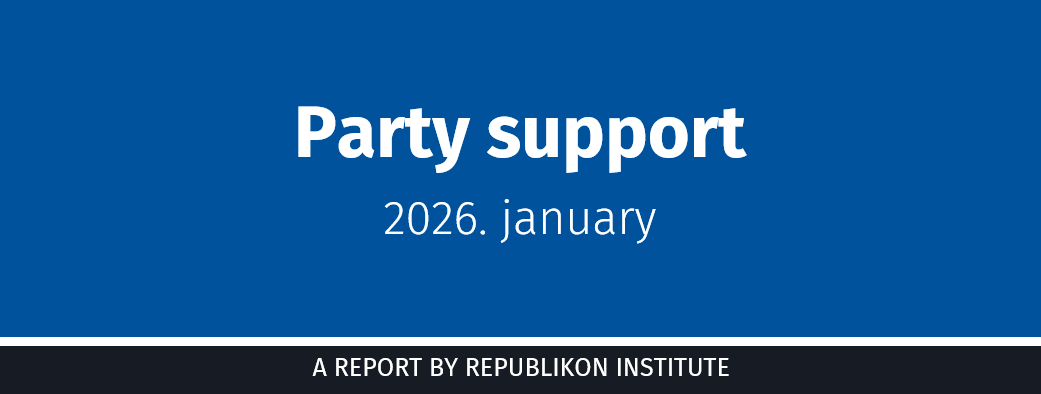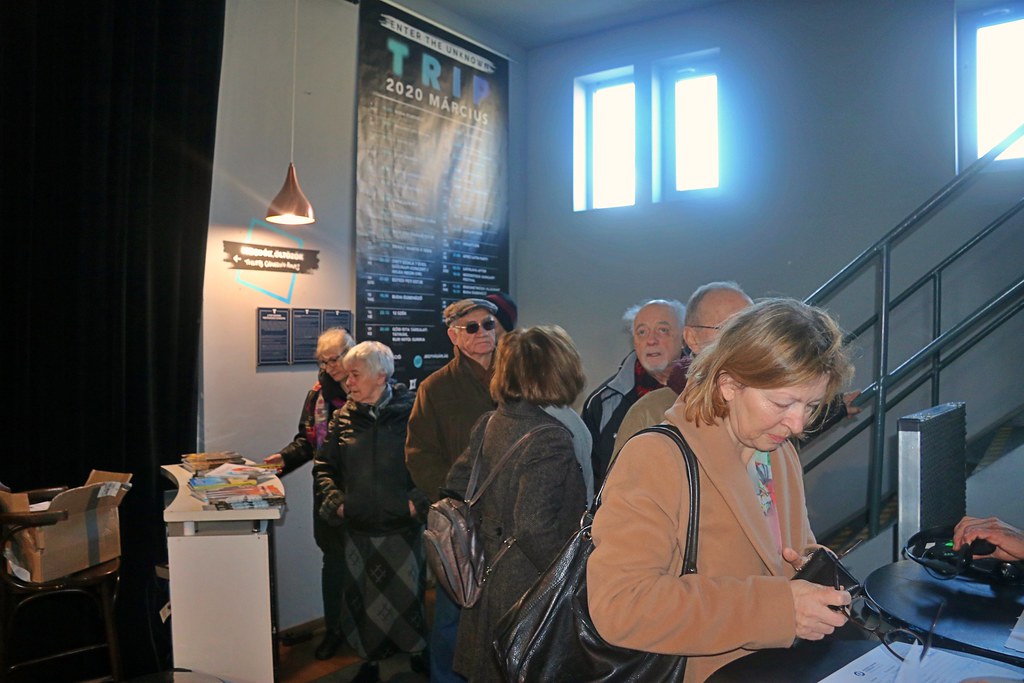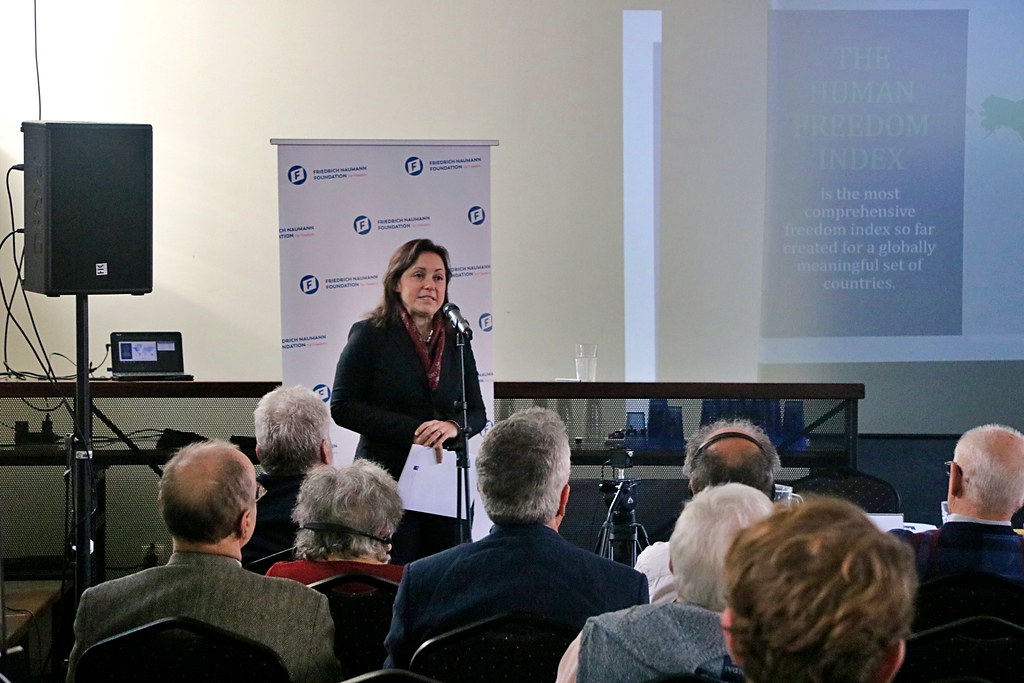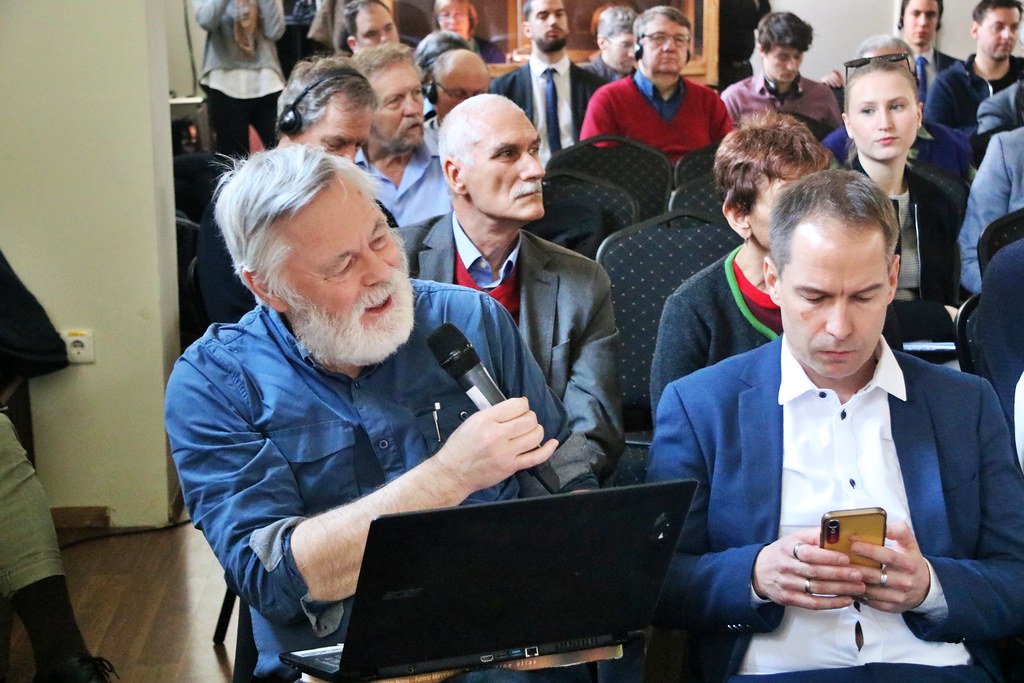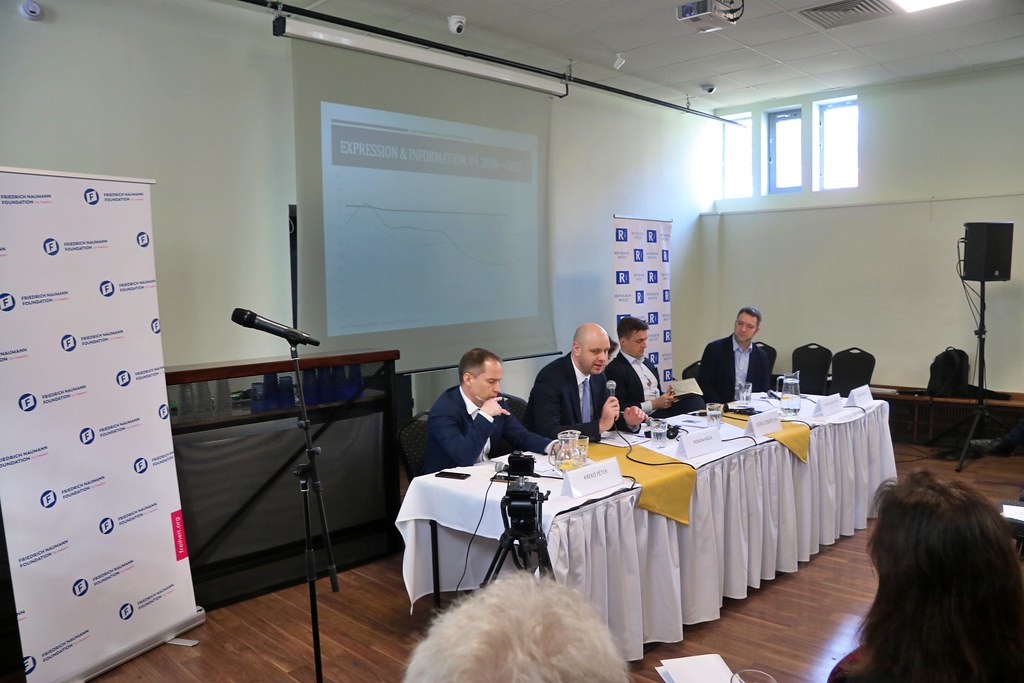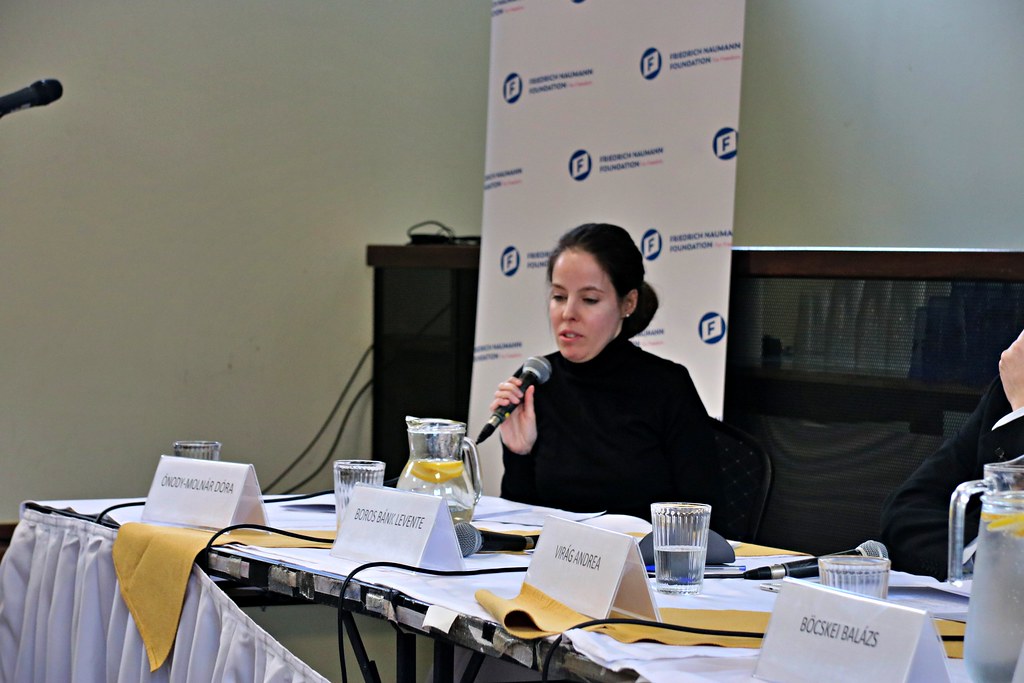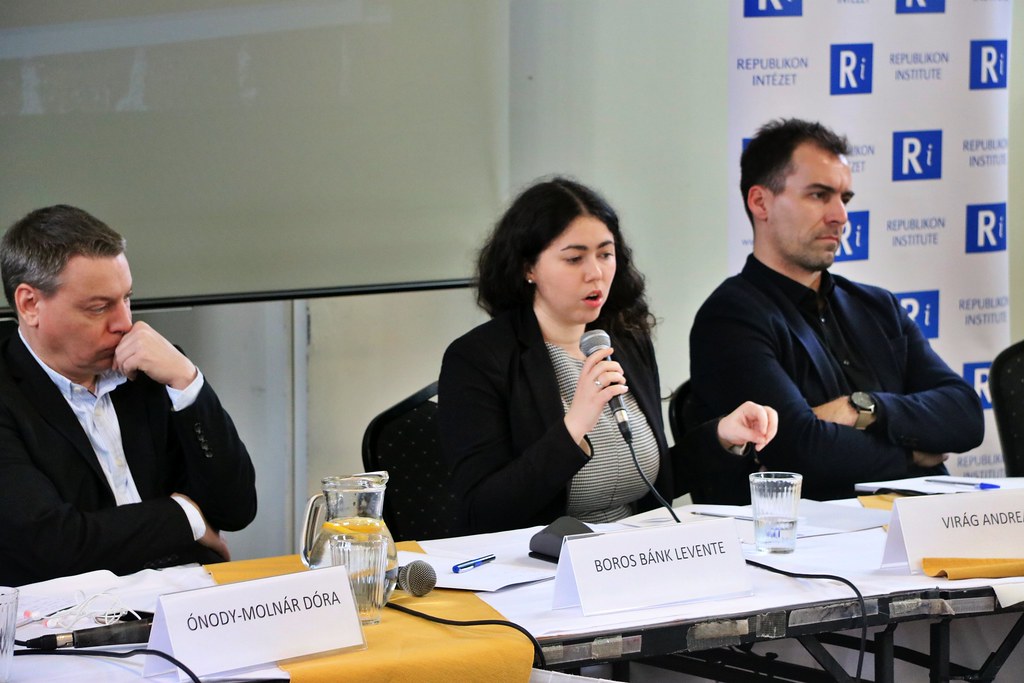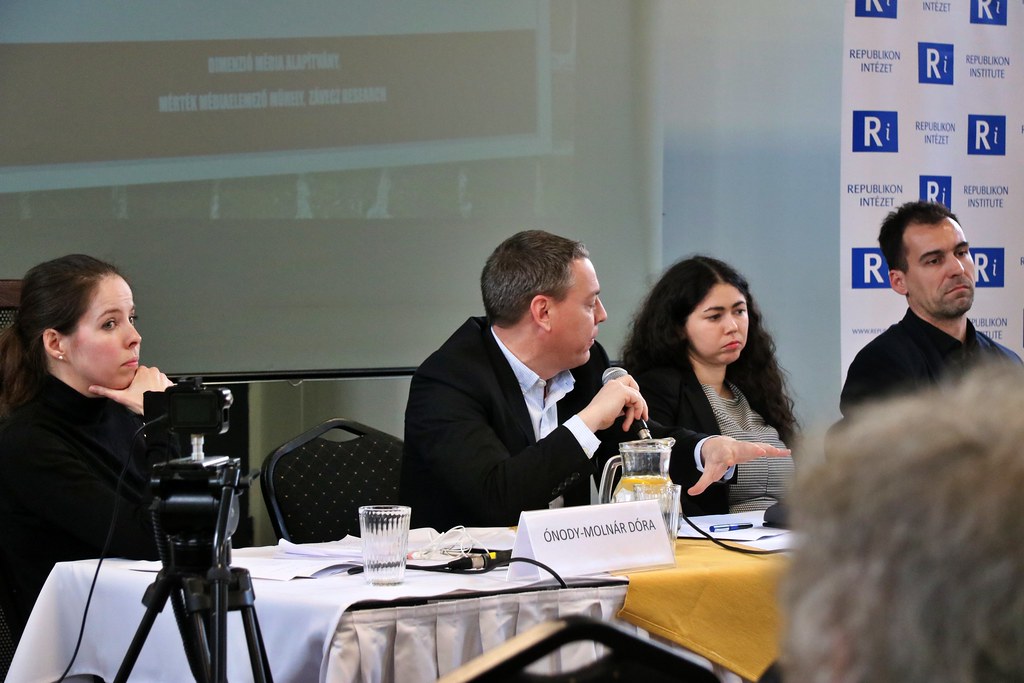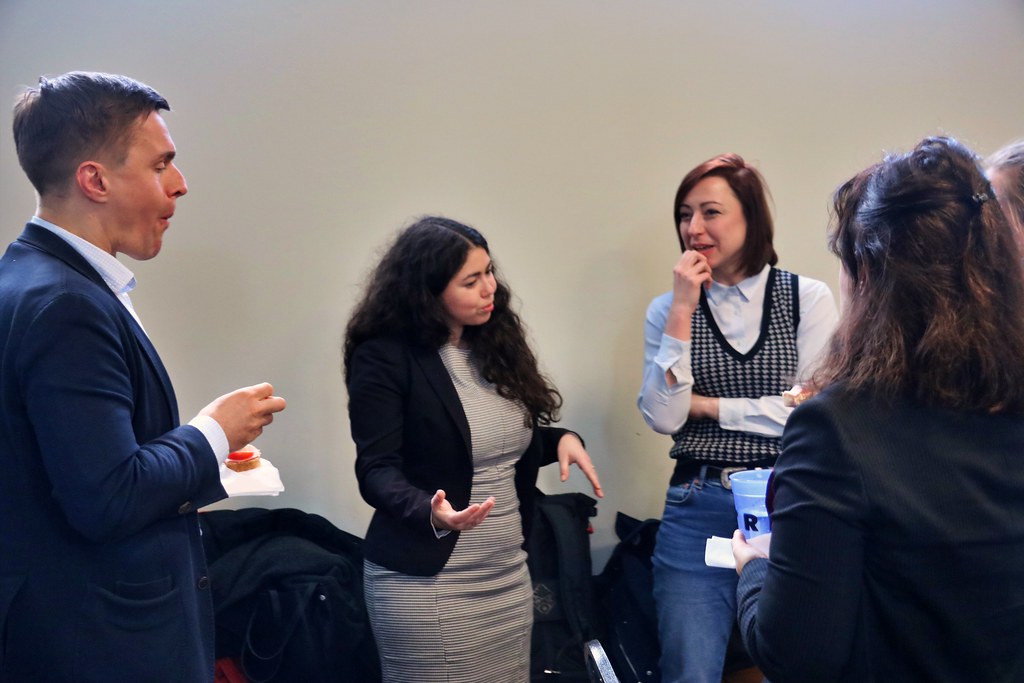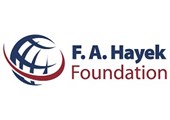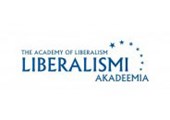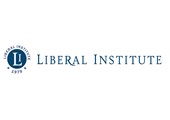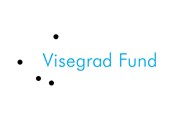Analyses and research
Analyses and research
- Party support in January 2026
- Party preferences changed relatively little at the beginning of the year. Tisza's support among the entire population remained stable, while Fidesz-KDNP's support increased by 1 percentage point. The current score stands at 33% for Tisza and 28% for Fidesz-KDNP, making Tisza's lead 5 percentage points. Among party voters, Tisza maintains 46% sup...
More - Slogans versus reality - Are we worse off than four years ago?
- "We are worse off than four years ago!" – this was Fidesz's slogan for the 2006 parliamentary election campaign, at least according to their most memorable poster campaign. The slogan criticized the performance of the Medgyessy and Gyurcsány governments since 2002. Fidesz focused primarily on unemployment and price increases, the poor economic s...
More - Party support - November 2025
- In November, party preferences changed marginally, with the biggest shift being in attitude towards voter turnout, which perhaps could benefit the Tisza Party. Tisza is currently ahead of Fidesz-KDNP by 6% points in terms of party support among the total population, with a 30 to 24 difference, favoring Tisza, mirroring last month. Among party v...
More - Waving goodbye to September with a new party support report
- At the end of September, the Tisza Party is ahead of Fidesz-KDNP by 5 percentage points among the entire population, the score is 30-25. Péter Magyar’s party leads by 6 percentage points among party voters and by 7 percentage points among decided voters, after gaining momentum within the margin of error. Among party voters the score is 41-35 in ...
More - Connecting Personal Agency, Autonomy, and Subjective Well-Being
- Subjective well-being (SWB), defined as individuals' self-reported assessment of their own life satisfaction and happiness, has become a focal point in contemporary social sciences. Understanding the factors that contribute to well-being is critical not only for academic research but also for policymakers seeking to enhance quality of life at th...
More - Popularity indicators of Hungarian politicians
- We often refer to our monthly party preference survey as a ”popularity contest”, but in the 2026 election race, voter preferences are more indicative of the individual political personas of politicians, rather than political parties. Voters primarily follow the media duel between Péter Magyar and Viktor Orbán, who are the leaders of the two curr...
More - Party support in October
- In October, the Tisza Party is ahead of Fidesz-KDNP by 6 percentage points among the entire population, 30 percent would vote for Péter Magyar’s party. TISZA has gained 2 percentage points among the party voters, resulting in an 8-percentage-point lead over the current government parties, making the score 43-35. 44 percent of the decided voters ...
More - One year of public media II.
- Democratic control, transparency, and impartiality in the operation of public service media are key to a free public sphere and informed decision-making by voters. The joint monitoring report by the Republikon Institute and Connect Europe, which is the first half-yearly report of a one-year project, for the period February-July 2025, attempts to...
More - Party preferences - August
- In August, the balance of power between the parties changed within the margin of error. The Tisza Party leads over Fidesz-KDNP by 4 percentage points among the total population, by 5 percentage points among party voters, and by 6 percentage points among committed party voters. The score is 30-26 among the total population, 39-34 among party vote...
More - Debtor, pay!
- An appropriate tax policy is a fundamental requirement for the functioning of any country. This is how the state generates the resources necessary for its operation, and although the government would like to manage as many resources as possible, it is equally important that citizens have money to spend or that the economy is strengthened through...
More

